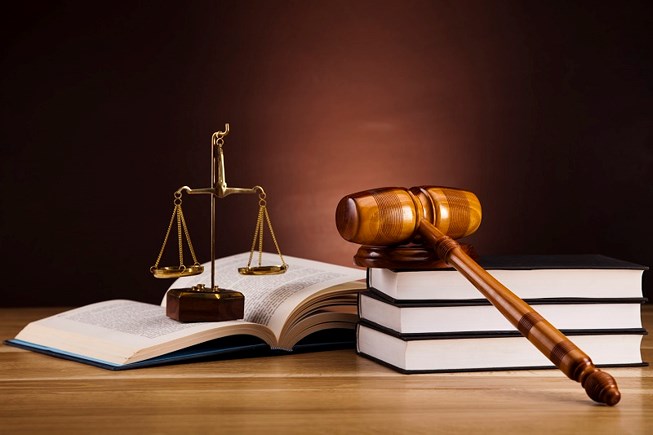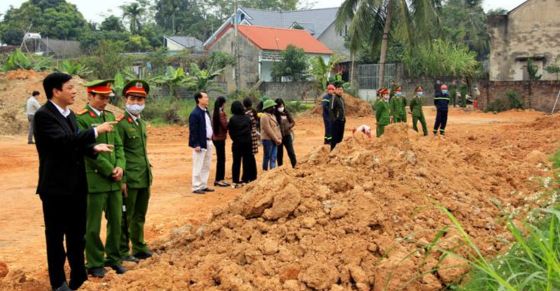10 types of violations against the content of the Law in Vietnam
What are the types of violations against the content of the Law in Vietnam? - Vinh Trong (HCMC)

10 types of violations against the content of the Law in Vietnam (Internet image)
The Supreme People's Procuracy issued Instruction 34/HD-VKSTC dated November 29, 2022 on skills to detect violations in resolving criminal cases for protests and recommendations.
10 types of violations against the content of the Law commonly encountered in criminal cases in Vietnam include:
10 types of violations against the content of the Law in Vietnam
Includes all violations by the prosecution agency in applying substantive law to resolve the case, primarily the Penal Code, Civil Code, and other legal documents. In practice, there are 10 common types of violations of content law, as follows:
1. Eliminate criminals
This is a case where a crime has been committed but the Investigation Agency does not prosecute the crime; the prosecution does not prosecute, leading to the Court not prosecuting it. The omission of a crime occurs in several forms: the omission of the offender, the omission of the crime or the omission of the criminal act, and the failure to investigate, prosecute, or adjudicate that act.
- Ignoring the offender often happens in cases of accomplices; the prosecution agency neglects to prosecute the helper, the perpetrator, the instigator, and even the mastermind and leader.
- Charges are dropped when a person commits many criminal acts and commits many different crimes, but the prosecution does not consider and prosecute all of those crimes but only prosecutes some crimes and leaves some other crimes behind.
For example, the defendant raped and then killed the victim, committing two crimes of "rape" and "murder", but the prosecution only prosecuted the crime of "murder" and ignored the crime of "rape".
- Criminal acts are overlooked when the subject commits many criminal acts but the prosecution agency only investigates, prosecutes, and judges some acts, leaving some acts unconsidered.
For example, if the defendant stole property five times, each time there were enough elements to constitute the crime of "property theft", the prosecution only concluded that the defendant had stolen twice, leading to an inaccurate assessment of the nature of the crime and a punishment that was too light and not severe for the defendant.
2. Violation of crime determination
There are 4 types of violations, which are cases of sentencing people who have not committed a crime, sentencing for more serious or less serious crimes, or crimes that are equal but not consistent with the defendant's criminal behavior.
In case of the conviction of a person who has not committed a crime, it is not only the Court's fault but also the Procuracy's and the Investigation Agency's fault if this agency recommends prosecution.
That person may not have committed a crime or committed a crime and been convicted, but in fact, there is not enough evidence to prove the crime.
3. Violations of the penalty framework
There are 02 types of violations, and the Court applies a penalty frame that is heavier or lighter depending on the nature of the defendant's crime. There is also a situation where the Court judges cases under an insufficient penalty frame based on Article 54 of the Penal Code.
4. Violations regarding the application of penalties
Improper application of the above penalty framework often leads to penalties that are too harsh or too light.
Besides, there are cases where the Court applies the correct penalty framework, but applies the specific penalty level inappropriately.
For example, the defendant commits the crime of "murder" with a penalty of 12 years, 20 years, life imprisonment, or the death penalty.
Due to the extremely serious nature of the crime and the many aggravating circumstances, the defendant should have been sentenced to death, but the Court sentenced the defendant to 20 years in prison;
Or conversely, the defendant has many mitigating circumstances, only needing to sentence the defendant to 20 years in prison, but the Court sentences the defendant to death.
5. Violation of the prison sentence will result in a suspended sentence
Article 65 of the Penal Code 2015 regulates suspended sentences, and the Council of Judges of the Supreme People's Court has Resolution 02/2018/NQ-HDTP dated May 15, 2018; Resolution 01/2022/NQ-HDTP dated April 15, 2022 amending and supplementing Resolution No. 02/2018 clearly stipulates cases where suspended sentences are not allowed.
In fact, there are court judgments that give defendants suspended sentences when they do not meet the conditions specified in the Penal Code and the instructions of the Council of Judges.
For example, the law stipulates that defendants with criminal records, multiple crimes, and more serious crimes who are the main conspirators are not given suspended sentences, but the Court still gave the defendant a suspended sentence.
6. Violations regarding the application of penalties
Article 32 of the Penal Code 2015 stipulates 14 types of penalties, including 7 main penalties and 7 additional penalties. Each type of penalty is applied to one or a certain number of criminal cases. The Court may violate it when applying it incorrectly to the cases prescribed by law.
For example, the non-custodial reform penalty only applies to people who commit less serious or serious crimes, but the Court applies it to cases of very serious or especially serious crimes.
7. Violation of summary penalties
These are cases where the penalties of multiple sentences are not combined; not summarizing the remainder of the sentence that is in progress;
Do not deduct the defendant's detention or detention period;
The time of execution of the sentence is not determined;
Not aggregated with prison sentences, but suspended sentences of sentences currently being served in accordance with the provisions of the Penal Code and in cases where the aggregated penalties are not accurate in terms of time served due to errors in data.
8. Violations in determining civil liability
These are cases where the Court determines that the compensation liability for the defendant is too high or too low and does not determine liability for compensation, reimbursement, or joint compensation;
Failure to properly identify those who have obligations and those who are entitled to benefits according to law.
For example, an employee causes damage while performing a task assigned by the company, but the company is not responsible for compensation;
Or the subject impersonates the customer's signature on the withdrawal request to withdraw money from the bank, the defendant must be forced to compensate the bank, and the bank still has to pay the customer but the Court forced the defendant to pay the customer.
9. Violation of the application of legal regulations in specialized fields
During the investigation, prosecution, and trial process, investigators, prosecutors, and Judges do not clearly understand the provisions of the law in specialized fields such as economics, finance, banking, construction, etc.; customs; land management; protection and exploitation of forest products; health care; and education, from which the documents and regulations that need to be applied cannot be found or are not found correctly, leading to a trial not in accordance with the law and affecting the determination of the criminal and civil liability of the parties participating in the proceedings.
10. Violations of decisions on judicial measures
These are measures to confiscate objects and money directly related to crime; return property; repair or compensate for damages;
Forced to publicly apologize; compulsory medical treatment is prescribed in Article 46 of the Penal Code.
The Court's violation may be a decision not to confiscate tools and means used to commit a crime, or conversely, confiscate tools and means when it cannot be proven that the defendant used them to commit a crime.
More details can be found in Instruction 34/HD-VKSTC, issued on November 29, 2022.
Ngoc Nhi
- Key word:
- violations
- in Vietnam
- Number of deputy directors of departments in Vietnam in accordance with Decree 45/2025/ND-CP
- Cases ineligible for pardon in Vietnam in 2025
- Decree 50/2025 amending Decree 151/2017 on the management of public assets in Vietnam
- Circular 07/2025 amending Circular 02/2022 on the Law on Environmental Protection in Vietnam
- Adjustment to the organizational structure of the Ministry of Health of Vietnam: Certain agencies are no longer listed in the organizational structure
- Vietnam aims to welcome 22-23 million international tourists in Vietnam in 2025
-

- Newest guidance on determining the area of land ...
- 09:00, 08/10/2024
-

- Latest regulations on penalties and remedial measures ...
- 18:31, 07/10/2024
-

- Ministry of Natural Resources and Environment ...
- 15:18, 24/09/2024
-

- Emergency response and search and rescue organizations ...
- 10:29, 11/09/2024
-

- Handling of the acceptance results of ministerial ...
- 09:30, 11/09/2024
-

- Notable new policies of Vietnam effective as of ...
- 16:26, 11/04/2025
-
.Medium.png)
- Notable documents of Vietnam in the previous week ...
- 16:21, 11/04/2025
-
.Medium.png)
- Notable documents of Vietnam in the previous week ...
- 16:11, 02/04/2025
-
.Medium.png)
- Notable new policies of Vietnam to be effective ...
- 16:04, 02/04/2025
-
.Medium.png)
- Notable new policies of Vietnam effective from ...
- 14:51, 21/03/2025
 Article table of contents
Article table of contents
